Vegan Globetrotter is supported by our audience. When you purchase through one of our links, we may earn a small affiliate commission. As an Amazon Associate I earn from qualifying purchases. Your cost is not affected.
==================
Buckwheat vs. rice: it’s a battle of the grains! Both buckwheat and rice are popular dietary staples, but which is better for your gut health? In this article, we’ll take a closer look at the nutritional profiles of buckwheat and rice and compare their health benefits. We’ll also discuss which grain is better for different dietary needs.

Buckwheat vs Rice: Navigating the Grain Landscape for Informed Dietary Choices
I’m excited to learn more about buckwheat and see if it’s time to switch up my grain routine. Please keep reading to learn the results of my research!
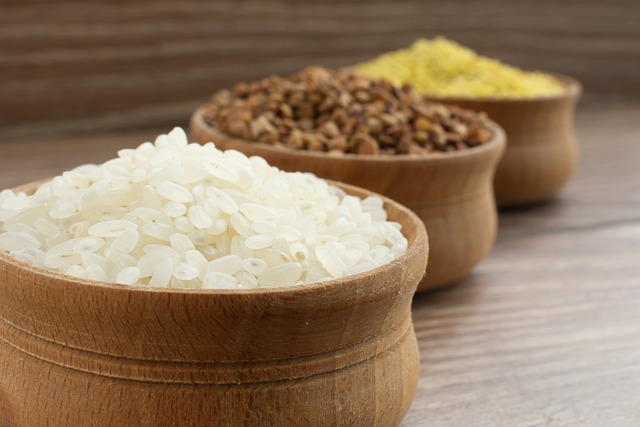
As a conscientious eater, you have likely heard of whole rice and buckwheat. They are both popular grains that are often used in a variety of dishes. But do you know what sets them apart from many common cereal grains? In this article, we’ll delve deeper into the world of these two grains, exploring their nutritional content, health benefits, and how they fit into a balanced diet. By the end of this read, you’ll better understand which grain packs a healthier punch: buckwheat vs. rice.
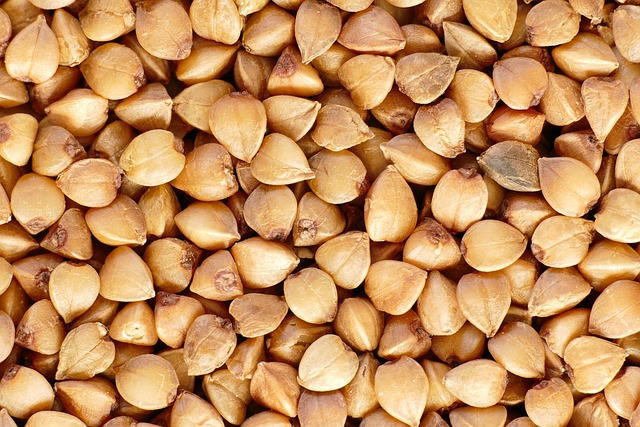

What Is Buckwheat? Is Buckwheat a Healthy Grain?
But first, did you know that Buckwheat is not a whole grain rice, despite its standard classification?
It’s a buckwheat plant, technically a seed, closely related to rhubarb and sorrel. Despite its name, it’s not even a grain or remotely associated with wheat. So, what is buckwheat exactly, and is buckwheat a healthy grain?
First, buckwheat is a highly nutritious food with vitamins, minerals, and antioxidants. It’s also a rich protein and fiber source, essential for maintaining good health. It’s naturally gluten-free, making it an excellent option for those with gluten intolerance or celiac disease. Moreover, it has a low glycemic index, so that it won’t cause a rapid spike in lower blood pressure or sugar levels.
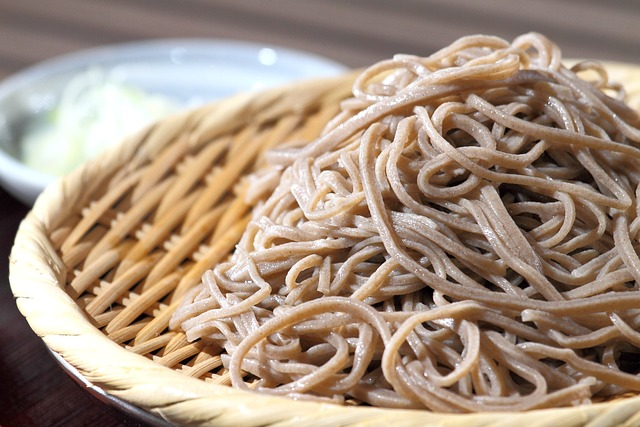
What is Rice? Focusing on Brown Rice
On the other side of the buckwheat vs. rice debate is rice, which needs no introduction. It’s a staple food for more than half of the world’s population, particularly in Asia. For this comparison, we’ll focus on brown rice, often touted as the healthier alternative to white rice. Brown rice is a whole grain, meaning it contains all parts of the grain — the bran, germ, and endosperm. It’s rich in essential nutrients like fiber, vitamins, and minerals. Brown rice is also a good source of antioxidants, which can help protect the body against damage from harmful free radicals.
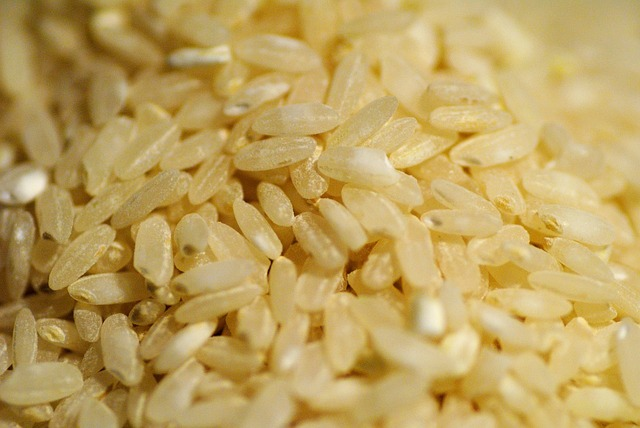
Nutritional Breakdown: Buckwheat vs. Rice

When comparing buckwheat vs. rice, looking at their nutritional content is essential. A cup of cooked buckwheat provides around 155 calories, 1.5 grams of fat, 33 grams of carbohydrates, 6 grams of protein, and 5 grams of fiber. It’s also a good source of magnesium, manganese, and copper.
On the other hand, a cup of cooked brown rice contains about 215 calories, 1.8 grams of fat, 45 grams of carbohydrates, 5 grams of protein, and 3.5 grams of fiber. It also provides a decent amount of magnesium, selenium, and vitamins B1, B3, and B6.
Health Benefits of Buckwheat
Buckwheat is a powerhouse of nutrients and is associated with several health benefits. Its high fiber content can help improve digestive health by promoting regular bowel movements and reducing the risk of constipation. The antioxidants in buckwheat can help reduce inflammation and protect your body against oxidative stress and chronic disease.

Moreover, the protein in buckwheat is high-quality, containing all nine essential amino acids. This makes it a great choice for vegetarians or those looking to increase their protein intake.
Nutrition in One Cup of Buckwheat Groats
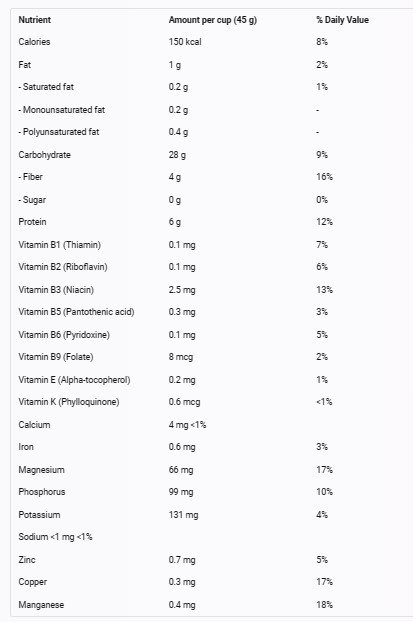
Health Benefits of Brown Rice
Brown rice, like buckwheat, offers several health benefits. Its high fiber content helps keep you feeling full, which can aid in weight management. It’s also beneficial for heart health, as it can help lower cholesterol levels and reduce the risk of heart disease.
Moreover, the antioxidants in brown rice can help protect your body from oxidative stress, reducing the risk of chronic diseases like cancer and heart disease. The magnesium in brown rice is also suitable for bone health and can help prevent osteoporosis.
Nutrition in One Cup of Brown Rice
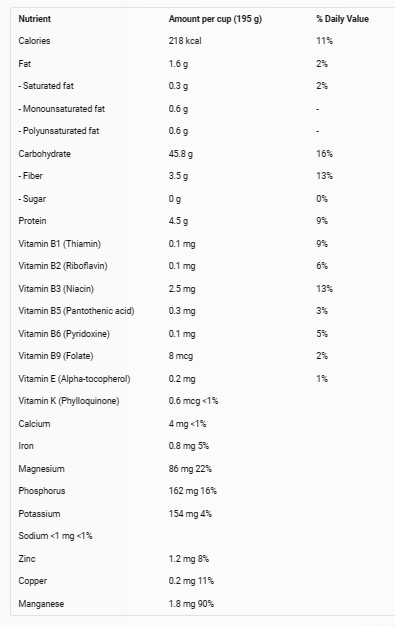
Dietary Considerations: Buckwheat vs. Rice
Both can be part of a healthy diet when comparing buckwheat vs. rice in terms of dietary considerations. However, buckwheat may be a better option for those with certain dietary restrictions or health goals.
For instance, buckwheat is gluten-free, so buckwheat is gluten-free, it’s a safe option for those with celiac disease or gluten sensitivity. Its low glycemic index also makes it a good choice for those with diabetes or those trying to control their blood pressure or sugar levels.

Buckwheat vs. Brown Rice
Here is a list of ways that buckwheat is healthier than rice, based on the web search results:
Fiber and Protein
Buckwheat has more dietary fiber and protein than rice, which can help with digestion, satiety, and improved blood sugar control than rice, which can help with digestion, satiety, improved blood sugar control, and muscle growth.
Calories and Net Carbs
Buckwheat has lower calories and net carbs than rice, which can help with weight loss, management, and metabolic health.
Vitamins and Minerals
Buckwheat has higher levels of vitamin B3, manganese, copper, magnesium, iron, and phosphorus than rice, which are essential for various bodily functions and processes.
Glycemic Index and Insulin Index
Buckwheat has lower glycemic index and insulin index values than rice, which raises blood glucose and insulin levels slower than rice, which can help prevent diabetes and other chronic diseases.
Antioxidants
Buckwheat contains more antioxidants, such as rutin, quercetin, vitexin, and D-chiro-inositol, than rice, which can protect the cells from oxidative stress and inflammation and reduce the risk of cardiovascular disease, cancer, and aging.
Gluten-Free Diet
Buckwheat is gluten-free, as is rice. Both are beneficial for people with gluten intolerance or celiac disease.
However, people with celiac disease need to check that the raw buckwheat groats or rice are labeled gluten-free. Some may be gluten-free alternatives but contaminated if processed in a facility that processes gluten grains such as wheat.
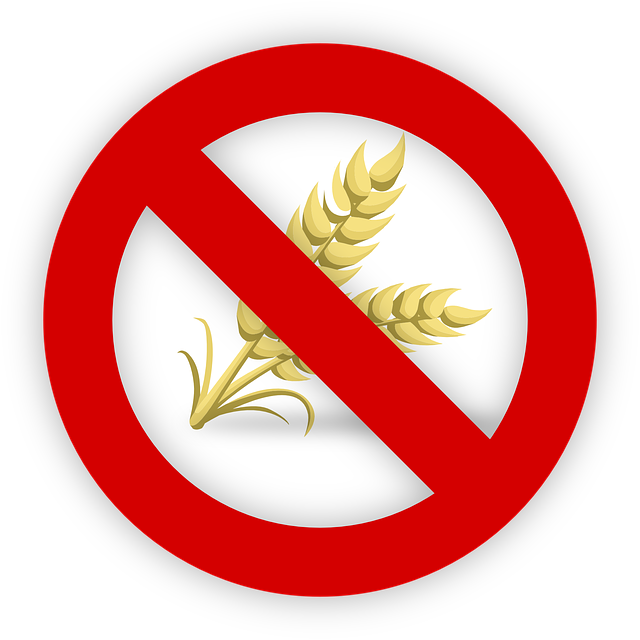
Cooking with Buckwheat and Brown Rice
Both buckwheat and brown rice provide a versatile choice to use in a variety of dishes. Buckwheat makes flavorful, chewy pancakes, bread, and even pasta. It can also be used in salads or as a side dish. Many also use it as a substitute for rice in a vegan stir-fry.
Brown rice can be used in stir-fries, salads, soups, and more. It’s a staple in many Asian dishes.
Buckwheat vs. Brown Rice: Which Packs a Healthier Punch?

So, when it comes to buckwheat vs. rice, which is the healthier option? Both are packed with nutrients and can be part of a balanced diet. However, buckwheat has a slight edge over brown rice due to its higher protein and fiber content, lower glycemic index, and its status as a complete protein.
Of course, it’s always best to incorporate a variety of whole grains in your diet to ensure you get a wide range of nutrients.
Fueling Your Day: The Power Duo of Buckwheat and Brown Rice

In the realm of nutritional powerhouses, both buckwheat and brown rice stand out as excellent sources that provide energy for your body’s many processes. These versatile grains not only contribute to the daily fuel your body needs but also bring a wealth of essential nutrients to the table.
Brown rice, a staple in countless Asian dishes, emerges as an excellent source with a unique nutritional profile. It acts as a sustained energy source, ensuring that your body has the stamina it requires for the day’s demands. Packed with fiber, vitamins, and minerals, brown rice supports digestive health and is a key player in maintaining a balanced diet. Its antioxidants also play a crucial role in shielding your body from oxidative stress, contributing to overall well-being.

Meanwhile, buckwheat takes the spotlight as an exceptional source of energy with a focus on diverse health benefits. Not only does it provide energy for many bodily processes, but it also boasts a high protein content, making it an excellent source for vegetarians seeking alternative protein options. Additionally, buckwheat shines as a gluten-free option, catering to those with dietary restrictions, and its low glycemic index ensures a gradual release of energy, supporting stable blood pressure and sugar levels.
Thus, embracing the dynamic duo of buckwheat and brown rice allows you to power your day with nutrient-rich options that go beyond merely providing energy. These grains contribute to the intricate dance of many processes, offering a delicious and wholesome foundation for a healthy lifestyle.

Video Credit: @mytown83
Ready to Try Buckwheat Groats?
Both buckwheat and rice have their own unique nutritional profiles and health benefits. While buckwheat products may edge out brown rice in certain areas, both grains can be part of a healthy and balanced diet.
The key is consuming various foods to ensure you’re getting a wide range of nutrients. So, whether you prefer buckwheat or rice, rest assured that both options can contribute to a healthy lifestyle.
Frequently Asked Questions
What Is the Healthier Option, Buckwheat or Rice?
Both buckwheat and rice have their nutritional benefits, and the more beneficial choice may depend on individual dietary preferences, health goals, and specific health conditions. Buckwheat is a gluten-free grain-like seed rich in protein, fiber, complex carbohydrates, vitamins (like B vitamins), and minerals (such as magnesium and manganese). It’s particularly high in essential amino acids, especially lysine, often lacking in other grains. Brown rice is a whole grain and contains fiber, B vitamins, minerals (such as magnesium, phosphorus, and selenium), and some protein. White rice, while a staple in many diets, is more processed and lacks the fiber and some of the nutrients found in brown rice.
How to cook buckwheat?
Cooking buckwheat is relatively simple and can be done on the stovetop. Rinse the buckwheat, then strain. You may also opt to toast the buckwheat for an earthier flavor. Then, cook like you would cook brown rice.
Is buckwheat a good option for managing blood sugar levels, particularly for individuals with diabetes?
Yes, buckwheat has a lower glycemic index than white rice, making it a better choice for controlling blood sugar levels, especially for individuals with diabetes.
Which grain has a lower glycemic index, brown rice or buckwheat?
Brown rice typically has a lower glycemic index than white rice, but buckwheat has a lower glycemic index than brown and white rice.
Which Grain Is More Environmentally Friendly – Buckwheat or Rice?
Buckwheat is often considered more environmentally friendly compared to rice. Buckwheat plants are hardy and can thrive in poorer soils, requiring less fertilizer and pesticides. Additionally, buckwheat grows relatively quickly, making it a potentially sustainable option compared to the water-intensive cultivation of certain types of rice.
Stay Engaged: Follow Us on Social Media Platforms
Embark on a journey of connection and discovery by joining our vibrant social media community! Be the first to know about exciting announcements, engage in thought-provoking conversations, and unlock exclusive benefits reserved just for our social media family.
Let’s build a digital bond that goes beyond the ordinary – follow us and become an integral part of our story!

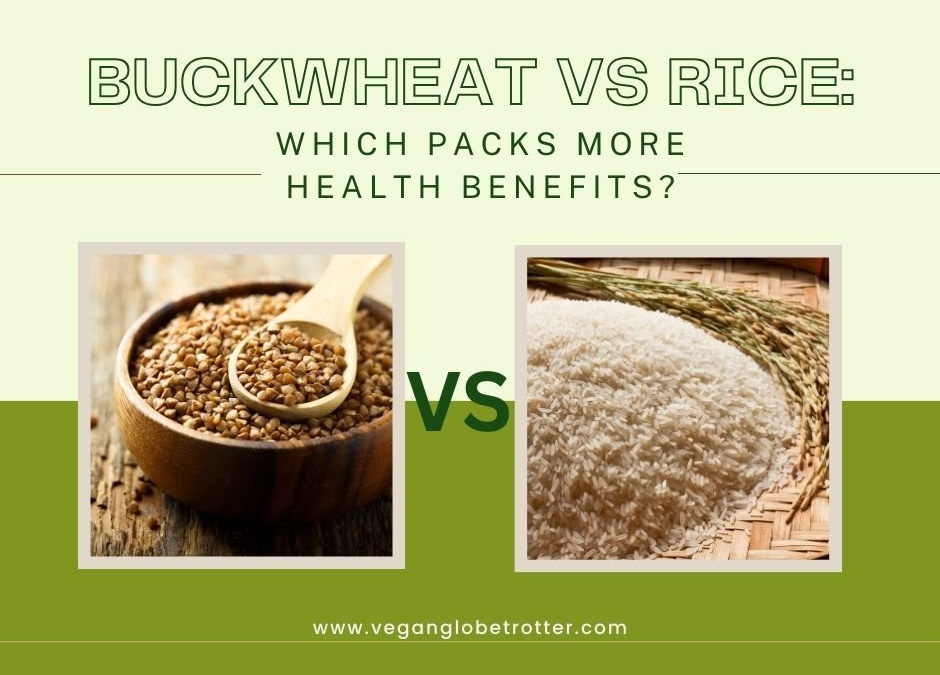




Don't miss out
when new recipes and information are added!
Join our newsletter for free recipes,
healthy living inspiration, and special offers
You have Successfully Subscribed!